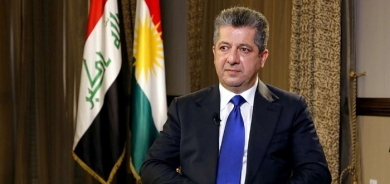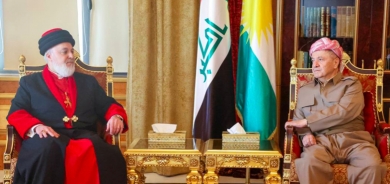UNEXPECTED MISHAPS

Mother Sultan said, “"I gave my son this name from my heart. I will never change this name… He (Obama) dispatched planes, aid for us. Because of his help maybe we will get rid of this cruelty and get back to our homes”.
We Turks have to ponder on why a woman and her husband Mahmut Beko Muslim, together with 200,000 Kurds only from Kobane and onther million and half Syrians welcomed in Turkey, is thanking a man at the other end of the World and not the county that gave them shelter and chances to survive. I believe the answer lies in the statement of the father: "We want Obama to help us so that we can get back home.We, the Kurds, attacked whom, fight against whom?"
The Turkish government and a part of the people think otherwise. Long at odds with Kurdish separatists, namely the PKK at home, they consider PYD, leading Kurdish party heading the defense of Kobane, to be an adjunct of the PKK. IS attacks are seen as a lesson to Syrian Kurds who have not succumbed to Turkish official demands. This political attitude of indifference towards Kobane Kurds fighting for their town and lives led them to believe that their real friends are the Americans not the Turks.
These sour feeling have born bitter fruits in eastern Turkey. Three unarmed soldiers in plain clothes shopping were shot in the backs of their heads by two masked attackers in broad daylight in the Yüksekova township.
Prime Minister Ahmet Davutoğlu said, “It is obvious that this attack is a planned provocation instigated by certain internal and external groups." This usual cliché in the face of crimes realized by unnamed perpetrators say a lot and nothing concrete. There may be many actors who would not want Turkey to play a definitive role in the Middle East. They would like to keep Turkey occupied within entangled with the (Kurdish) problem that it has not been able to solve so far.
Assassination of three soldiers was followed by the murder of a village guard, a pro-government local militia organized against the PKK. The style of his murder and putting money in the mouth of the slayed man is definitely a message to other guardsmen to question their allegiance.
While the whole country was mourning for its losses at a time when the agreement on immobilization (ceasefire) between the government and the PKK was underway, another provocative act was staged in Cizre past Saturday. The Patriotic Revolutionist Youth Movement (YDG-H) -- an affiliate of the outlawed PKK -- declared autonomy in Cizre, district of the southeastern province of Şırnak.
Hundreds of masked YDG-H members holding PKK flags declared the Sur and Nur neighborhoods as autonomous territories that will “rule themselves”. Their declaration reflected the rise of a unified Kurdish political consciousness making country boundaries meaningless: “….The Kobani resistance has shown us the truth. If the revolution does not take place in Turkey, all other gains will remain in peril forever…” Turkey’s inaction against possible fall of Kobane to ruthless IS has wider repercussions than what the government expected. Unwillingly it has united all the Kurdish enclaves in the Middle East. Furthermore it has put the “solution process” carried on between the Turkish government and the PKK in difficulty. Kurdish people supporting the government’s peace initiative had second thoughts as the Turkish government made the dismantling of self-ruling Syrian Kurdish cantons in return for help in Kobane’s defense.
Every Kurd knows that Kobane’s fall would be decapitating the Kurdish political existence in Syria. IS, known with its ceremonial beheadings would do the same not only to Kobane Kurds but to other Kurdish entities in northern Syria along the Turkish border. This possibility seems to have turned the emotional tide against Turkey among Kurds within and without.
With its idiosyncratic choices the Turkish government has rendered Turkey’s former role as Middle East’s secular, pro-Western force, to the Kurds. Things are now a little more difficult for Turkey both within and without.

 Doğu Ergil
Doğu Ergil






